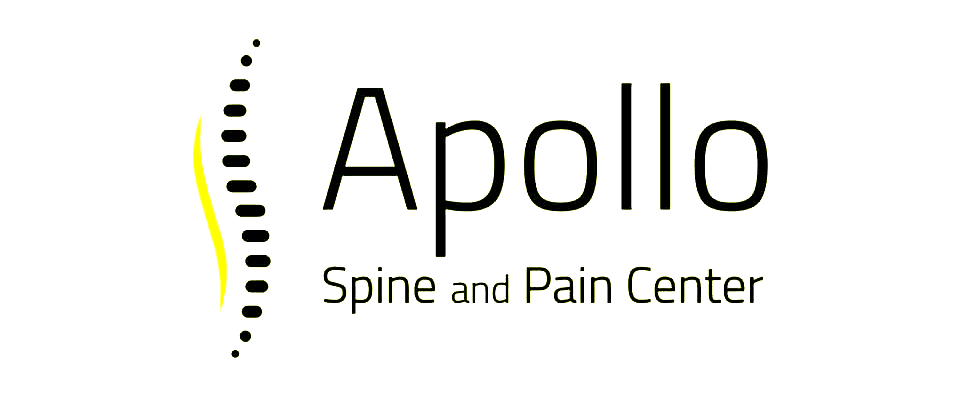Comprehensive Pain Management Glossary: Key Terms You Need to Know
Understanding pain management terminology is essential for making informed decisions about your care and confidently discussing your treatment options with a pain management specialist. With this comprehensive glossary of key terms, we aim to demystify the language surrounding injections, epidurals, spinal cord stimulators, and pain medications, allowing you to better comprehend the various treatment options available at Apollo Spine and Pain Center.
From understanding the mechanics of how spinal cord stimulators work to the differences between various pain medications, this glossary will serve as your go-to resource for navigating your pain management journey. Read on to enhance your knowledge and empower yourself as you discuss your personalized treatment plan with our expert specialists at Apollo Spine and Pain Center.
Injections
1. Corticosteroid Injections: Corticosteroids are anti-inflammatory medications that can provide relief for patients with joint, muscle, and nerve inflammation. Doctors may inject corticosteroids directly into the affected area, leading to reduced pain and swelling.
2. Hyaluronic Acid Injections: Primarily used for osteoarthritis treatment, hyaluronic acid injections provide lubrication within the joints, reducing pain and improving mobility.
3. Trigger Point Injections: These injections target tight knots within muscles, called trigger points, that can cause pain or discomfort. Trigger point injections commonly contain a local anesthetic or a corticosteroid, which relaxes the muscle and reduces inflammation.
4. Botox Injections: Known for its cosmetic uses, Botox (botulinum toxin) injections can also help with chronic pain conditions like migraines and muscle spasms by reducing nerve signals responsible for muscle contractions.
Epidurals
1. Epidural Steroid Injections (ESI): An epidural steroid injection is a minimally invasive procedure that delivers steroids directly into the epidural space surrounding the spinal cord. ESI can alleviate inflammation and pain caused by conditions such as herniated discs, spinal stenosis, or sciatica.
2. Caudal Epidural Injection: This specific type of epidural injection targets the lower back and is administered via the caudal canal, which is located at the base of the spine. Caudal epidural injections are often used for patients with lower back and leg pain.
3. Transforaminal Epidural Injection: A more targeted approach, transforaminal injections deliver steroids through the foramen (small openings between vertebrae). This technique allows for precise application to a specific nerve root, making it suitable for treating radicular pain.
Spinal Cord Stimulators
1. Spinal Cord Stimulation (SCS): SCS is a pain management technique that involves the implantation of electrodes along the spinal cord connected to a battery-powered stimulator. Electrical impulses are delivered to the spinal cord, which interrupts pain signals being sent to the brain.
2. Dorsal Root Ganglion (DRG) Stimulation: Similar to SCS, DRG stimulation targets a specific cluster of sensory nerves called the dorsal root ganglion. The stimulation affects these nerves directly, reducing pain in a focused area of the body.
3. BurstDR Stimulation: An advanced type of SCS, BurstDR stimulation delivers intermittent bursts of electrical energy rather than a continuous flow. This can result in more natural pain relief and reduced paresthesia (a tingling sensation), sometimes experienced with traditional SCS.
4. High-Frequency Stimulation: Another alternative to traditional SCS, high-frequency stimulation delivers electrical impulses at a frequency of 10,000 Hz, which is believed to provide more effective pain relief without the tingling sensations associated with conventional SCS.
Pain Medications
1. Nonsteroidal Anti-inflammatory Drugs (NSAIDs): NSAIDs are a class of medications that help manage pain, fever, and inflammation. Over-the-counter NSAIDs include ibuprofen (Advil, Motrin) and naproxen (Aleve), while prescription-strength NSAIDs can offer more potent relief for chronic or severe pain.
2. Acetaminophen: Commonly known as Tylenol, acetaminophen is an over-the-counter pain reliever and fever reducer. It can provide relief for mild to moderate pain, but does not possess any anti-inflammatory properties.
3. Opioids: Strong prescription pain medications, opioids work by altering the way the brain perceives pain signals. Due to their potential for side effects and risk of dependency, opioids are typically reserved for severe pain management under close medical supervision.
4. Antidepressants: While primarily used for treating depression, some antidepressants can relieve chronic pain by affecting the way the brain processes pain signals. Tricyclic antidepressants and selective serotonin-norepinephrine reuptake inhibitors (SNRIs) are most commonly used for pain management purposes.
5. Anticonvulsants: Originally developed for seizure treatment, certain anticonvulsant medications can help manage nerve pain by stabilizing nerve cell activity. Gabapentin and pregabalin are examples of anticonvulsants prescribed for neuropathic pain.
Treatment Processes
1. Pain Assessment: Before beginning any pain management treatment, a comprehensive assessment must be conducted by a pain management specialist. This includes a detailed history, physical examination, and any necessary diagnostic tests to understand the root cause of the pain.
2. Multidisciplinary Approach: Effective pain management often requires a collaborative approach, involving professionals from several fields, including physical therapists, psychologists, and pain management physicians.
3. Tapering Medications: In some cases, patients may need to reduce their dependency on certain medications, particularly opioids. Tapering refers to the gradual reduction of the drug's dosage until it is discontinued.
4. Patient Education: An essential aspect of pain management is educating patients about their condition, treatment options, and self-management techniques for improved symptom management and quality of life.
Empower Yourself with Knowledge for Better Pain Management Outcomes
In conclusion, familiarizing yourself with essential pain management terms can significantly enhance your understanding of the various treatment options available. Our glossary serves as a comprehensive guide to injections, epidurals, spinal cord stimulators, and pain medications, equipping you with valuable knowledge to make informed decisions about your care.
Are you ready to take control of your
pain management journey in Cumming, GA, with the support of our expert specialists at Apollo Spine and Pain Center? Schedule a consultation today, and together, we will create a personalized, multifaceted treatment plan tailored to your specific needs. Don't let pain hold you back any longer — embrace the power of knowledge and advanced pain management techniques to improve your quality of life today!












